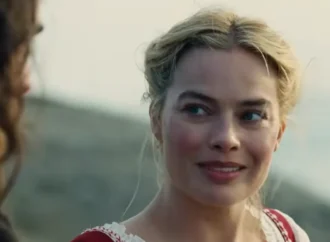I’m a sucker for books about books and book lists. On my shelves are titles like Gladys and Mark Hunt’s “Honey for a Child’s Heart: The Imaginative Use of Books in Family Life”; George and Karen Grant’s “Shelf Life”; and James Mustich’s “1,000 Books to Read Before You Die.” Give me a cup of coffee, an hour of time, a comfortable chair, and Nick Hornby’s “Ten Years in the Tub: A Decade Soaking in Great Books,” and you would be hard-pressed to find a happier man within a hundred miles.
Which brings me to John Senior’s “The Thousand Good Books.”
Senior was a writer and teacher whose impact is still felt today. He is especially noted for his work as a professor at the University of Kansas, where he co-founded and taught the Integrated Humanities Program (IHP). Because of complaints that IHP students were “becoming proponents of objective truth,” with some converting to Catholicism, the university shut down the project after a decade.
Yet Senior’s teaching and books led to the founding of colleges like Wyoming Catholic and schools like Gregory the Great Academy in Pennsylvania and the newly-founded St. Andrew’s Academy in Kentucky.
At the end of his book “The Death of Christian Culture,” Senior affixed an Appendix, “The Thousand Good Books.” Shorn of any description except authors and titles, this instructive inventory is divided by categories of age ranging from two to 20. Containing few books of history, theology or philosophy, the list is largely a wonderful collection of Western literature. Some of these are what we call the “Great Books,” like Tolstoy’s “War and Peace” and Hugo’s “Les Miserables,” while others, like Walter De la Mare’s “Songs of Childhood,” Edgar Wallace’s “The Man Who Knew,” and Louisa May Alcott’s “Spinning-Wheel Stories,” long ago disappeared from library bookshelves.
Senior’s choices for this tally of authors and titles – why pick over 30 books by James Fenimore Cooper, or 14 by H. Rider Haggard? – might baffle readers until we consider the title of his list. He chose many of these good books because they were either once popular or simply tell great stories. Moreover, most of Senior’s selections come from the 19th and early 20th centuries.
In an invaluable preface to this Appendix, Senior explains more about his choices along with some insightful comments about literature and reading in general. He notes that the “Great Books” of the post-World War II era fizzled out not because of the featured works by authors like Plato and Thomas Aquinas, but because “like good champagne in plastic bottles, they went flat.” To read them with competence, Senior contends, we must first have at our disposal an abundance of “fables, fairy tales, stories, rhymes and adventures.” And while the distinction between great and good is fuzzy, Senior helps us out: “Great books call for philosophical reflection; good books are popular, appealing especially to the imagination.” Hence, “The Thousand Good Books.”
Senior tells us upfront that his is only a partial list of such works, revealing right away that mark of any good teacher: honesty. He notes that most of these selections belong to that time “before which cars and electric light had not yet come to dominate our lives and the experience of nature had not been distorted by speed and the destruction of shadows.” Regarding the books he has chosen, he observes that his compilation is designed for “the amateur—the ordinary person who loves and enjoys what he reads….”
One great pleasure of this list is the adventure in reading it promises. Scores of titles were new to me, as well as some authors, and I suspect the same will be true for others who scout out this catalogue of literature. I’d heard of the British writer Edgar Wallace, for example, but I’ve never read a word of his writing. Ditto for Wilkie Collins, Zane Gray, Alain Le Sage, Richard Blackmore, and more.
Like many of you readers, I have neither the time nor the inclination to attempt too many of Senior’s reading picks, but I do plan on coming back to this list on occasion, selecting a few titles, and seeing what I can dig up at the library or online. I’ll be looking for an escape from today’s headlines – always a healthy motive for a news hound – and for some fun and delight in the printed word.
Take a look at Senior’s list and see what you think.
—
The republication of this article is made possible by The Fred & Rheta Skelton Center for Cultural Renewal.
Image Credit: Piqsels
50 comments















50 Comments
Daisy Vivian
July 14, 2025, 2:07 pmHouse poised for final showdown over Trump’s “mega bill xenixnews.com
REPLYNorrisAHolmes@Daisy Vivian
July 15, 2025, 5:15 amɪᴍ ᴍᴀᴋɪɴɢ ᴏᴠᴇʀ 𝟷𝟹ᴋ ʙᴜᴄᴋs ᴀ ᴍᴏɴᴛʜ ᴡᴏʀᴋɪɴɢ ᴘᴀʀᴛ ᴛɪᴍᴇ. ɪ ᴋᴇᴘᴛ ʜᴇᴀʀɪɴɢ ᴏᴛʜᴇʀ ᴘᴇᴏᴘʟᴇ ᴛᴇʟʟ ᴍᴇ ʜᴏᴡ ᴍᴜᴄʜ ᴍᴏɴᴇʏ ᴛʜᴇʏ ᴄᴀɴ ᴍᴀᴋᴇ ᴏɴʟɪɴᴇ sᴏ ɪ ᴅᴇᴄɪᴅᴇᴅ ᴛᴏ ʟᴏᴏᴋ ɪɴᴛᴏ ɪᴛ. ᴡᴇʟʟ, ɪᴛ ᴡᴀs ᴀʟʟ ᴛʀᴜᴇ ᴀɴᴅ ʜᴀs ᴛᴏᴛᴀʟʟʏ
ᴄʜᴀɴɢᴇᴅ ᴍʏ ʟɪғᴇ…..➤➤ http://www.get.money63.com
REPLYAnnabelleBarker@NorrisAHolmes
July 16, 2025, 11:39 amMy roomate’s mom-in-regulation makes usd eighty one each hour at the laptop . She has been fired for eight months but remaining month her paycheck turned into usd 17367 just operating on the pc for a few hours…..
Reading This Article:—- https://Www.Payathome9.Com
REPLYFeatherjourney@Daisy Vivian
July 15, 2025, 12:31 pmEverybody can earn 220$/h + daily 1K… You can earn from 6000-12000 a month or even more if you work as a part time Work…It’s easy, just follow instructions on this page, read it carefully from start to finish… It’s a flexible job but a good eaning opportunity..go to this site home tab for more detail thank you…….
REPLY.
Reading This Article:———- http://Www.Cash43.Com
Repavotdilit@Daisy Vivian
July 16, 2025, 4:51 amI’m making $23000 to $29000 a month working part time. I kept hearing other people tell me how much money they ws can make online so I decided to look into it. Well, it was all true and has totally changed my life. First month i received $24758 just working on the laptop for 3 hours per day.
REPLYThis is what I do…………www.get.money63.com
RuthsGroger@Daisy Vivian
July 16, 2025, 4:53 amI’m making $23000 to $29000 a month working part time. I kept hearing other people tell me how much money they ws can make online so I decided to look into it. Well, it was all true and has totally changed my life. First month i received $24758 just working on the laptop for 3 hours per day.
REPLYThis is what I do…………www.get.money63.com
Gillian Bayford
July 15, 2025, 2:05 amI want to use this medium to share my incredible manifesting with Dr. Kachi, who truly changed my life. For a long time, I struggled with homelessness after losing my job as a nurse. Life felt like an endless battle, and I spent many years trying to win the lottery, hoping for a better future. But despite my efforts, I had no success and was growing increasingly frustrated. That was until I came across an amazing testimony from a woman named Natasha, who shared how Dr. Kachi helped her win the National EuroMillions jackpot. I had always loved playing EuroMillions, but winning seemed impossible for me. However, after seeing Natasha's story, I decided to reach out to Dr. Kachi prepared a special spell to help me with guaranteed lucky numbers. Within 24 hours, he provided me with the winning numbers and instructed me to play. To my amazement, I won £184.656 million in the EuroMillions! Thanks to Dr. Kachi, my life has been transformed, and my financial situation has changed for the better. I will never forget this joyful moment, as it has been the best thing to ever happen to me. If you’re struggling and seeking a way out, never give up. Dr. Kachi can help you, just as he helped me. Keep your faith and take a chance – your life could change too! contact website https://drkachispellcaster.wixsite.com/my-site his email [email protected] or his phone text or call number: +1 (209) 893-8075
REPLYAminawajid
July 15, 2025, 2:54 amI get paid over $130 1 to 3 hours working from home with 2 kids at home. I never thought I'd be able to do it but my best friend earns over $27k a month doing this and she convinced me to try. The potential with this is endless.
REPLYHeress———–> http://www.now.jobs67.com
Gillian Bayford
July 15, 2025, 3:02 amI want to use this medium to share my incredible manifesting with Dr. Kachi, who truly changed my life. For a long time, I struggled with homelessness after losing my job as a nurse. Life felt like an endless battle, and I spent many years trying to win the lottery, hoping for a better future. But despite my efforts, I had no success and was growing increasingly frustrated. That was until I came across an amazing testimony from a woman named Natasha, who shared how Dr. Kachi helped her win the National EuroMillions jackpot. I had always loved playing EuroMillions, but winning seemed impossible for me. However, after seeing Natasha's story, I decided to reach out to Dr. Kachi prepared a special spell to help me with guaranteed lucky numbers. Within 24 hours, he provided me with the winning numbers and instructed me to play. To my amazement, I won £184.656 million in the EuroMillions! Thanks to Dr. Kachi, my life has been transformed, and my financial situation has changed for the better. I will never forget this joyful moment, as it has been the best thing to ever happen to me. If you’re struggling and seeking a way out, never give up. Dr. Kachi can help you, just as he helped me. Keep your faith and take a chance – your life could change too! contact website https://drkachispellcaster.wixsite.com/my-site his email [email protected] or his phone text or call number: +1 (209) 893-8075
REPLYRuthsGroger
July 15, 2025, 5:15 amɪᴍ ᴍᴀᴋɪɴɢ ᴏᴠᴇʀ 𝟷𝟹ᴋ ʙᴜᴄᴋs ᴀ ᴍᴏɴᴛʜ ᴡᴏʀᴋɪɴɢ ᴘᴀʀᴛ ᴛɪᴍᴇ. ɪ ᴋᴇᴘᴛ ʜᴇᴀʀɪɴɢ ᴏᴛʜᴇʀ ᴘᴇᴏᴘʟᴇ ᴛᴇʟʟ ᴍᴇ ʜᴏᴡ ᴍᴜᴄʜ ᴍᴏɴᴇʏ ᴛʜᴇʏ ᴄᴀɴ ᴍᴀᴋᴇ ᴏɴʟɪɴᴇ sᴏ ɪ ᴅᴇᴄɪᴅᴇᴅ ᴛᴏ ʟᴏᴏᴋ ɪɴᴛᴏ ɪᴛ. ᴡᴇʟʟ, ɪᴛ ᴡᴀs ᴀʟʟ ᴛʀᴜᴇ ᴀɴᴅ ʜᴀs ᴛᴏᴛᴀʟʟʏ
ᴄʜᴀɴɢᴇᴅ ᴍʏ ʟɪғᴇ…..➤➤ http://www.get.money63.com
REPLY